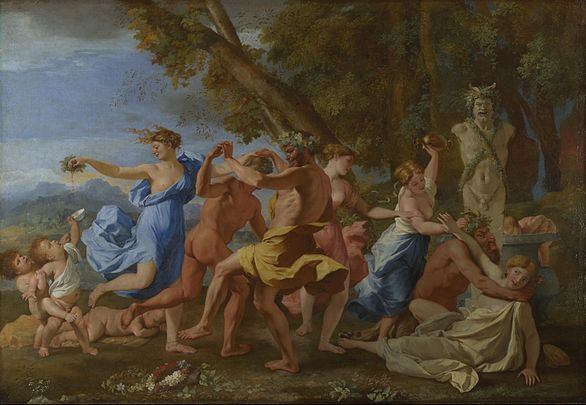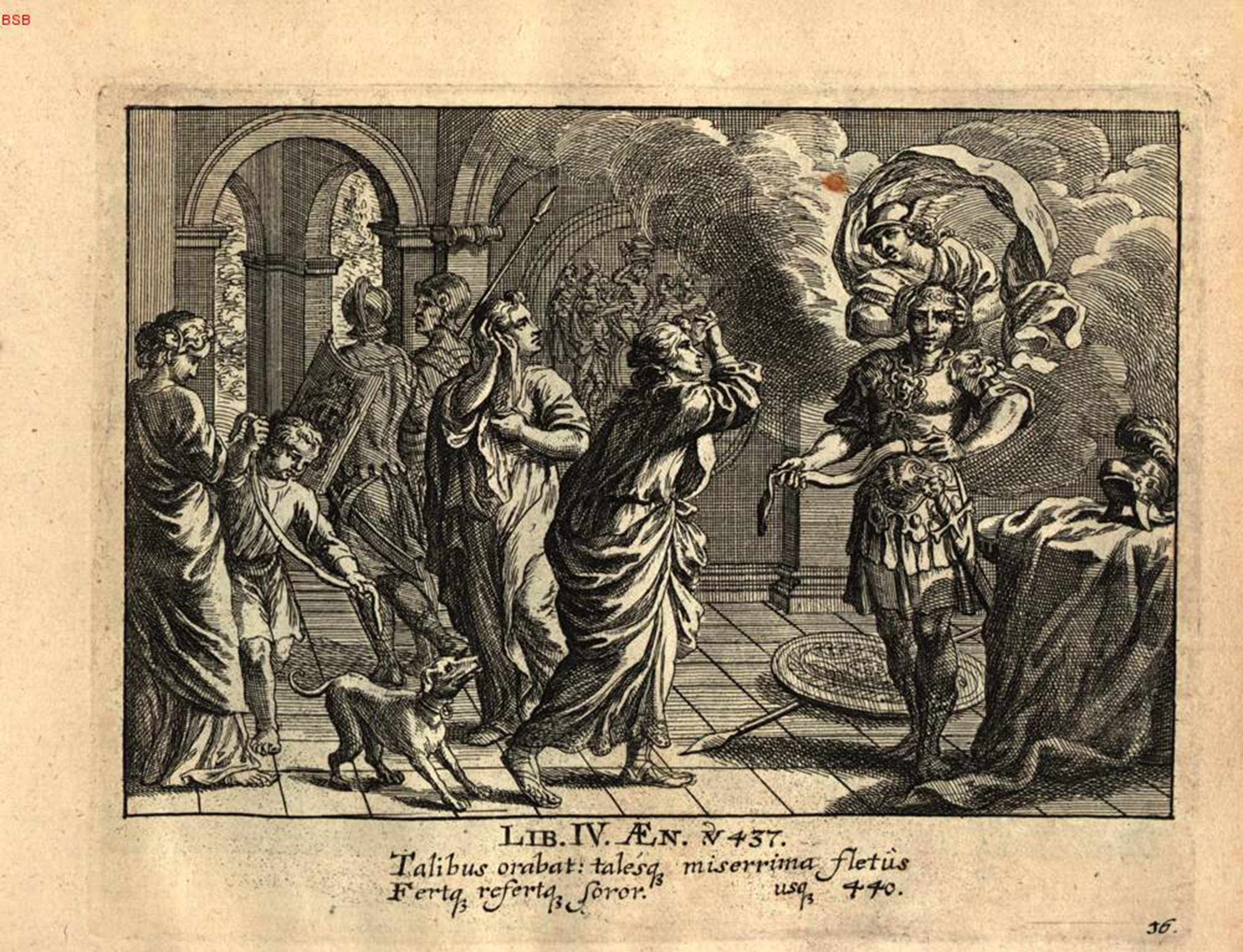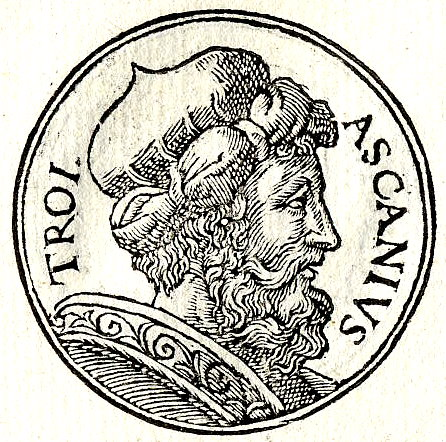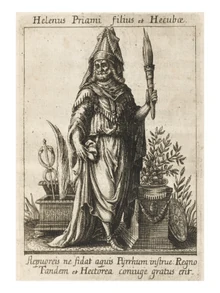5.3 Vergil, Aeneid, Book 4 Lines 296-361
8 min read•june 18, 2024
Jack Marso
Riya Patel
AP Latin 🏛
24 resourcesOverview
Lines 304-313
Tandem hīs Aenēān compellat vōcibus ultrō:
'dissimulāre etiam spērāstī , perfide, tantum
posse nefās tacitusque meā decēdere terrā?
Nec tē noster amor, nec tē data dextera quondam
nec moritūra tenet crūdālī fūnere Dīdō?
Quīn etiam hībernō mōlīrī sīdere classem
et mediīs properās Aquilōnibus īre per altum,
crūdēlis? Quid, sī nōn arva aliēna domōsque
ignōtās peterēs, et Trōia antīqua manēret.
Trōia per undōsum peterētur classibus aequor?
- Why do Aeneas and raging Dido meet at the start of these lines?
- Why does Dido call Aeneas an “oathbreaker"?
- What does the winter season have to do with Dido’s troubling view of Aeneas leaving?
- Write out all of line 7 (et...altum) and mark scansion
- Why does Dido bring up that Aeneas wouldn’t leave for Troy in the middle of the winter?
- Dido sensed Aeneas leaving and sensed future events that were going to transpire, with the assistance of Fama, who had played a role in disclosing the “marriage” earlier
- Dido and Aeneas had just gotten “married”. Dido believed that Aeneas, as his Trojan fleet was preparing for departure, that he was going to leave without telling her and break the pledge of trust that takes place within a “marriage”
- The winter season on the Mediterranean is also the season where storms wreak havoc amongst ships and fleets.
- From left to right: dactyl-dactyl-dactyl-dactyl-dactyl-spondee
- It’s questionable as to why the Trojans would leave to a location that they aren’t even aware of, as they wouldn’t depart for a location they are comfortable with.
Lines 333-339
Tandem pauca refert: 'Ego tē, quae plūrima fandō
ēnumerāre valēs, numquam, rēgīna, negābō
prōmeritam, nec mē meminisse pigēbit Elissae
dum memor ipse meī, dum spīritus hōs regit artūs.
Prō rē pauca loquar . Neque ego hanc abscondere fūrtō
spērāvī nē finge fugam, nec coniugis umquam
praetenī taedās aut haec in foedera vēnī.
He replied briefly finally: “O queen, I will never oppose that you justify the most that can be portrayed out in this message, nor will I repent my views of you, Elissa, while recollection itself is my own, and breath administers these limbs. I’ll express about the truth temporarily. I didn't think to hide my departure by slyness (don’t believe that), nor have I ever grasped the marriage torch, or entered into that agreement.
Breakdown of Lines 296-361 🔎
- It was Aeneas’s task to inform Dido of the Trojan departure. However, Dido already sensed his trickery or his concealed preparations. It’s true: It’s not possible to deceive a lover. Dido was already watching for devious behavior from Aeneas as she was the first to know about their departure.
- Dido is paranoid about everything concerning Aeneas, even safe ventures. Her paranoia, in means of being the first to know, is concerned about Aeneas’s commitment to her. Fama, the same messenger that spread the rumor of their marriage, now brought Dido anger as she learned about their departure.
- Dido rages “from out of the mind” and “rants flamed” like the flame of love builds up this madness while “running through the city like a follower of Bacchus.” To follow up, Dido is compared to a follower of Bacchus, Thyiad “shook by the shaken emblems of the god.”
- These symbols would be the hearing Bacchic cry and arousing of the Festival of Bacchus, which was celebrated biannually. Lastly, Mount Cithaeron, a mountain outside of Bacchus’s birthplace, “calls her by night with its noise.” To make more sense to explain how mad Dido became a picture during the Festival of Bacchus: naked women dancing in weird ways throughout the countryside, animals were eaten raw after being torn apart or King Pentheus of Thebes is torn apart by Bacchic celebrants.

Depiction of the Festival of Bacchus also known as Bacchanalia where the artist shows the wildness of the celebration. Image Courtesy of Nicolas Poussin
- Dido, after some time raging, finally reprimands Aeneas willingly. “Oathbreaker” with reference to “punic loyalty” is what Dido describes Aeneas “hoped to be able to hide such wickedness” and departure from Carthage without saying a word. Dido wonders if her love doesn’t restrain Aeneas, nor the pledge of “marriage” and an alliance between two sides. Also, Dido hyperbolizes or has already made up her mind that if Aeneas leaves, she will commit suicide.
- Dido continues to conjecture why Aeneas, “cruel one”, would be busied on his ships “even in winter” when doing so would mean to “journey over the seas in the midst of the northern winds” as the winter season was the stormy season in the Mediterranean Sea.
- Another question continues Dido’s thought of Aeneas’s odd time of leaving by hypothesizing that even if Aeneas wasn’t departing for a new location, but ancient Troy still remained, Aeneas still wouldn’t leave in the middle of winter to a place he was comfortable with already. This set up her point since Troy has fallen: Why would Aeneas be leaving to a location he doesn’t even know?
- There’s only one possible answer that originally comes to Dido’s mind: it must be because of me. Dido begs Aeneas to not leave her by her own tears, Aeneas’s right hand in pledging his oath, their “wedding” and their “marriage.” Dido hasn’t done anything else other than giving everything she has towards Aeneas. Aeneas is obligated to stay since Dido gives while Aeneas receives in their unbalanced relationship.

Even after Dido's begging for Aeneas fails, this depiction details Anna, Dido's sister, in attempting to beg Aeneas to stay as well. Aeneas is sure of what has to be done. Image Courtesy of Munich Digitization Center
- Dido tells Aeneas to have compassion for her legacy that will fall apart if he leaves and if there is any supposed room left for prayers, Dido finally highlights to banish the thoughts of leaving.
- Dido transfers her attention to continuing how her reputation : would be harmed if Dido left. The “Libyan people and Numidian tyrants” including King Iarbas of Numidia hate Dido all because Aeneas and even her own Carthaginians are aggressive referring to her people not approving of their relationship. Dido’s reputation and honor are lost because of Aeneas which could mean immortality, although clearly hyperbolized.
- Dido, “a dying woman” metaphorically and literally killing her, doesn’t understand why this “guest”, not “husband” is abandoning her which is all that is left from the vow made after her former husband, Sychaeus’s death. “What’s left for me” in terms of staying alive and remaining in Carthage as either Pygmalion, Dido’s brother, sieges the city or King Iarbus takes her captive.
- Dido concludes by mentioning that she would not “feel me so cheated and abandoned” if she had only conceived a child from Aeneas before he fled for Italy to remind her of Aeneas’s former self.

Depiction of Ascanius, the son of Aeneas. Dido only wishes she bore a child as Aeneas did with his wife, Creusa. Image Courtesy of Guillaume Rouillé's Promptuarii Iconum Insigniorum
- Dido is done speaking, and Aeneas “sets his mind firmly on Jupiter’s warnings” and although moved by Dido’s words, hides his pain and replies with his rebuttal. Aeneas proclaims that Dido doesn’t deserve all of this happening to her, but her injuries aren’t only merely caused by her complaints. Aeneas’s thought of Elissa, another name for Dido, won’t be altered in any way while Aeneas can still remember and remain alive.
- Aeneas will “briefly address the charge.” Aeneas never meant to hide his departure from her, but never “held the marriage torch ” nor “entered into the pact.” Simply, Aeneas never thought of them to be “married”, but only within Dido’s own imagination.
- Aeneas transfers the approach of his speech to what Aeneas could do what he wanted to do, he would have not stayed in Carthage with Dido, but rather provided defense and in the end, saved Troy. The city would still be standing and built to higher levels of success rather than finding a new city.
- In Book III, Aeneas is ordered by Apollo through Helenus, which instructed him to go to Italy, ultimately prophesying Aeneas’s creation of Rome. Aeneas, who is acting like Apollo not following his duties, remembers that Italy “is my destiny, that is my country” and he must follow through, not on Dido and Carthage.

Portrayal of Helenus, the prophesier that informed Apollo to order Aeneas to head towards Italy to found Rome. Image Courtesy of Wikia
- It’s ironic that Dido reprimands Aeneas as she is a foreigner in Carthage, a Phoenician queen, but envies Aeneas and the Trojans to settle in Italy. “It’s the divine right for us to seek a foreign kingdom.”
- Aeneas motions his speech to his father’s terrifying ghost in Aeneas’s recurring dreams. Aeneas mentions the wrong that he would be doing to his son, Ascanius, and how he would be cheating him “of a Hesperian kingdom” that he could someday rule. Even now, after the message of Mercury commanded by Jupiter, Dido doesn’t believe the fact that his departure could have been ordered by a god, although Aeneas “spotted him in broad daylight” and his “ears drank his words.”
- Lastly, Aeneas asks Dido to stop stimulating herself and him with complaints, and ends by saying that “I go to Italy, not on my own accord.”

Fiveable
Resources
© 2025 Fiveable Inc. All rights reserved.